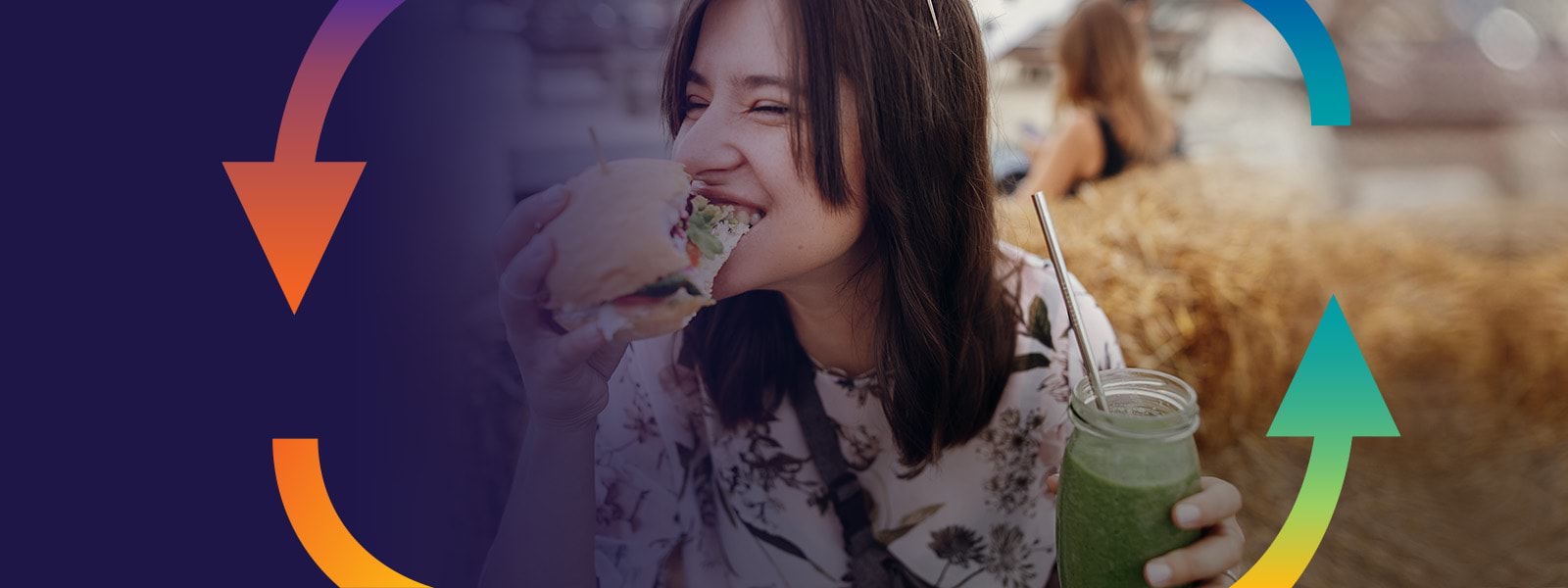On this page
- Plastic pollution harms our health, wildlife, and the environment
- How to comply with the ban - free resources are available
- National action on problematic and unnecessary plastics
- Frequently asked questions
- What is banned?
- Exemptions
- Single-use plastic straw restriction
- Compliance and enforcement
- Excess stock
- Health and safety
- More information
Plastic pollution harms our health, wildlife, and the environment
These problematic single-use plastics are now banned from sale or supply in Victoria:
- Drinking straws
- Cutlery
- Plates
- Drink stirrers
- Cotton bud sticks
- Expanded polystyrene food service items
- Expanded polystyrene drink containers.

The ban applies to conventional, degradable and compostable plastics.
People who need single-use plastic drinking straws due to disability or medical needs can still purchase and use these items.
The Victorian Government has undertaken a comprehensive, statewide program to assist businesses and organisations to understand and comply with the ban. Over 6,500 retail and hospitality businesses across Victoria have been directly engaged through face-to-face visits by engagement officers.
Victoria’s single-use plastic ban builds on the ban on lightweight plastic shopping bags that commenced in November 2019. More information on the plastic bag ban is available on the Environment Protection Authority website.
How to comply with the ban - free resources are available
The factsheet, poster and postcard below can help your business or organisation comply with the ban.
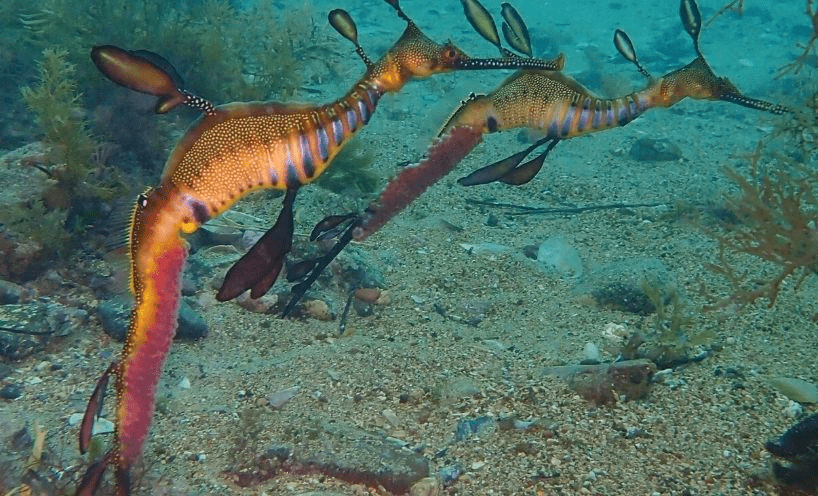
Single-use plastics ban resources
Free guides, posters, and postcards to help you to comply with the single-use plastics ban.
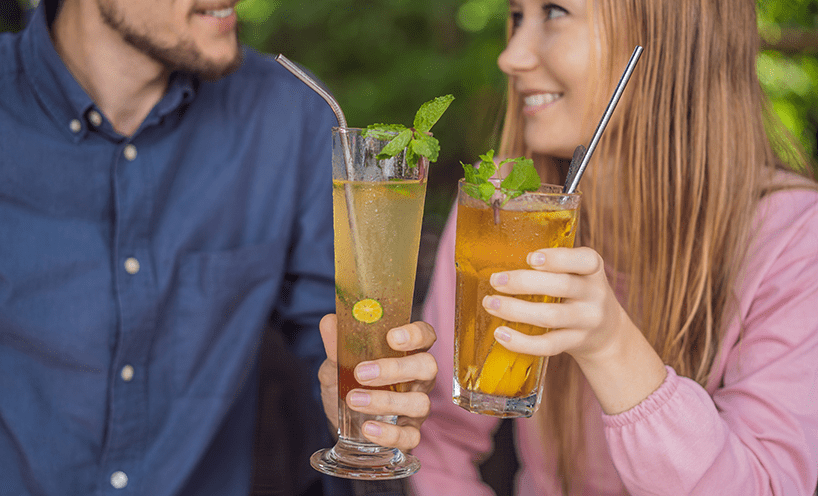
Reusable resources
Visit Sustainability Victoria for resources to assist your hospitality business make the switch to reusables with case studies, advice and free posters.
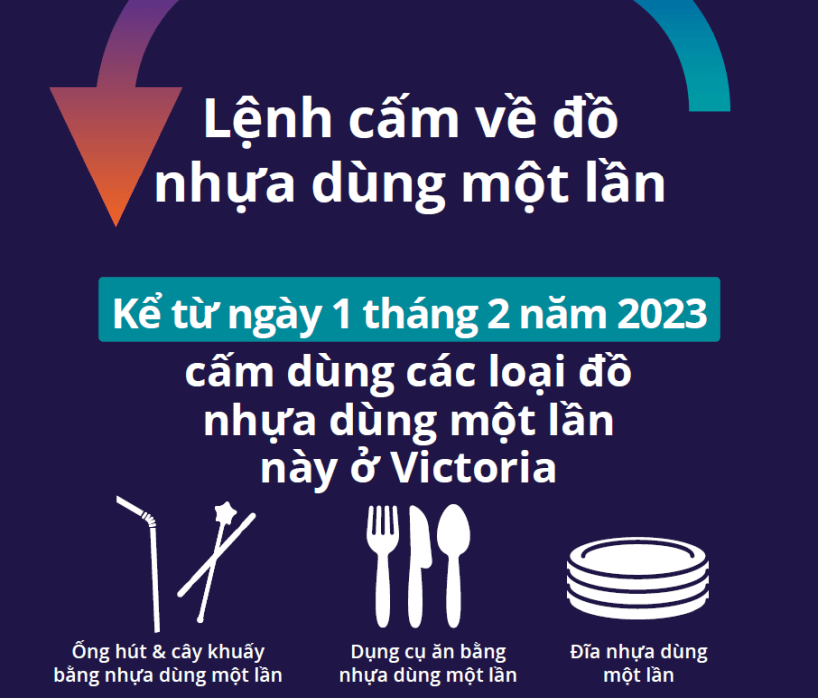
Translated resources
A range of translated resources for different language groups to understand the ban.
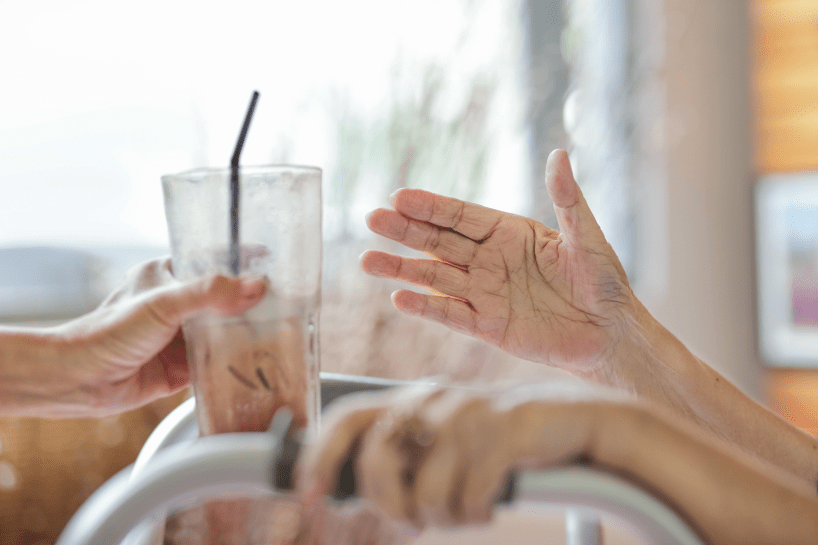
Single use plastic straw resources
Information for people who need single-use plastic straws due to disability or medical need.
National action on problematic and unnecessary plastics
We are working together with other states, territories, and the Commonwealth Government to align action on problematic and unnecessary plastics across Australia.
At the 10 December 2024 Environment Ministers Meeting it was agreed to:
- release a summary of the National Roadmap: Harmonising action on problematic and unnecessary plastics
- work together to reduce variation across jurisdictions in action on 24 items - this will not reverse existing measures
- ensure future action is coordinated and consistent where possible.
Strengthened harmonisation nationwide can better support Australian businesses in complying with actions that reduce plastic use and pollution and to operate more efficiently across the country.
Read the summary of the Roadmap on the Australian Government's website: Harmonising action on problematic and unnecessary plastics.
For further information, please contact SUP.Policy@deeca.vic.gov.au.
Frequently asked questions
What is banned?
Banned items are single-use plastic:
- drinking straws
- cutlery including knives, forks, spoons, chopsticks, sporks, splades, food picks and sporks
- plates
- drink stirrers and sticks
- cotton bud sticks
- expanded polystyrene food service items and drink containers. This includes expanded polystyrene plates, cups, bowls, clam shells and any cover or lid that is also made from expanded polystyrene.
All forms of plastic can be bad for the environment when littered.
Single-use plastic drinking straws, cutlery, plates, drink stirrers and cotton bud sticks made from conventional, degradable and compostable plastics, including bioplastic and oxo-degradable materials are banned. The ban also applies to food service items and drink containers made from expanded polystyrene.
Compostable plastic items can harm wildlife the same way conventional plastic items do if they are littered. Many compostable plastics require processing at a specialised compost facility in order to break down effectively.
Expanded polystyrene (EPS) food service items and drink containers are banned. This includes EPS plates, cups, bowls, clam shells and any cover or lid that is also made from expanded polystyrene.
The Regulations do not apply to EPS containers used for food packaging and transport, where the food is not typically consumed from the receptacle.
For example, the Regulations do not apply to EPS trays for transporting raw meats, large EPS food storage boxes or EPS multi-serve gelato tubs.
Single-use plastics:
- make up a third of the litter we see in our environment – they are difficult and costly to clean up
- are a poor use of resources – they are often used for only a few minutes and generate a significant amount of waste that is difficult to recycle
- pollute the environment – harming wildlife and contaminating our food and water
The ban applies to businesses and organisations including not-for-profits, government, sports clubs, schools, and others that are incorporated.
It is the responsibility of all Victorian businesses and organisations to comply with the Regulations and not sell or supply certain single-use plastic items, including to patrons or customers.
From 1 February 2023, Victorians cannot purchase, or be supplied with single-use plastic drinking straws, plates, cutlery, drink stirrers, cotton bud sticks or expanded polystyrene food service items and drink containers from any business or organisation.
These items cannot be sold or given away for free.
Businesses and organisations can offer reusable items or single-use items made from alternative materials.
There are limited exemptions that provide the use of items in specific circumstances. This includes the use of single-use plastic drinking straws for individuals who require them due to disability or medical needs.
A banned single-use plastic item is one that is made wholly or in part of plastic and is not reusable.
Reusable items are manufactured to be used for the same purpose on multiple occasions, and come with a warranty, or other written representation from the manufacturer, that they are designed to last for at least one year.
It is important that reusable plastic items are genuinely reusable and durable enough to be used for ongoing use.
In order to define a banned single-use plastic item, the regulations for the ban also define the reusable equivalents of those items.
Reusable plastic straws, plates, cutlery, drink stirrers or cotton bud sticks are those that:
- are made to be used multiple times for the same purpose
- come with a warranty or other written representation from the manufacturer, that they are designed to last at least one year.
If you are a business or organisation that sells, supplies, or provides reusable plastic straws, plates, cutlery, drink stirrers or cotton bud sticks you should check with your supplier that these products meet these 2 requirements.
If you are a manufacturer that sells, supplies or provides reusable plastic items you will need to provide a warranty or other written representation as to the length of time the item is designed to last, of at least one year.
Avoid single-use items where possible and choose reusable alternatives instead.
If you cannot avoid single-use, then consider items made from non-plastic materials such as responsibly sourced paper, wood or bamboo.
The Sustainability Victoria website has more information and resources on how your business can avoid single-use plastics and make the switch to reusables.
Exemptions
There are 5 exemptions where banned single-use plastic items can continue to be used in Victoria. These are for specific circumstances where items are required for health and safety reasons or where suitable alternatives to a sub-set of banned items are not currently available.
- Single-use plastic drinking straws for people who need them due to disability or for medical reasons
- Single-use plastic cotton bud sticks for testing carried out for scientific, medical, forensic or law enforcement purposes
- Single-use plastic cutlery, where required, in correctional and mental health facilities to prevent physical harm or injury
- Until 1 November 2024 paper or cardboard plates lined with plastic
- Until 1 January 2026 any single-use plastic item that is integrated into food or drink packaging by a machine automated process (e.g., a single-use plastic spoon included in a yogurt tub).
Businesses and organisations that are using single-use plastic items in line with exemptions outlined in the Regulations do not need to apply for an exemption.
You may wish to provide your supplier with a written statement that the items are being used in line with the regulations.
No. Banned single-use plastic items must only be used in the specific circumstances outlined in the exemptions. This does not allow businesses or organisations to use these items across the whole business or undertaking.
For example, a hospital can only use single-use plastic drinking straws for individuals who require one due to disability or for a medical reason.
Some paper or cardboard plates have a plastic lining – such as laminate or other thin films, to prevent inks and dyes from contaminating food.
Paper or cardboard plates with a plastic lining, regardless of whether the lining is made from conventional or compostable plastic, will be banned from sale and supply in Victoria on 1 November 2024.
Alternative products that do not contain plastic are currently in development and are becoming available.
The delayed commencement of the ban for these items provides time for the industry and the community to transition to alternative non-plastic products. To support national consistency this date is aligned with similar rules in NSW.
The Victorian Government will work with businesses involved in the plastic-lined paper plate supply chain to monitor and support this transition.
Single-use plastic straw restriction
From 1 February 2023, the use of single-use plastic drinking straws is restricted.
Single-use plastic straws can continue to be used by people who need one due to disability or medical needs. This exemption supports independent living, social inclusion, and equal participation.
Single-use plastic straws may be available at any retailer or hospitality venue; however, businesses may choose to no longer stock or sell straws.
If you need a straw, you should be aware that:
- You need to request a single-use plastic straw at a shop or cafe as it cannot be accessible to the public without the assistance of a staff member. This does not need to be a verbal request.
- You do not have to show or share proof of disability or medical condition.
- Someone can ask for a straw for you. This could be a medical professional, carer, friend, or family member.
- Hospitality and retailers have been told that they can continue to provide straws to people who need them, but they don’t have to keep them in stock.
A preference to use plastic straws over other materials (such as paper) is not a valid reason for needing a single-use plastic straw. You should not ask for one if you do not need to use a plastic straw.
Single-use plastic straws which bend, are flexible and can be positioned, are a vital accessibility aid for many people, who rely on them to eat and drink independently. Other options such as paper or reusable straws are not always suitable or safe.
Any business or organisation, including not-for-profit organisations, can sell or supply single-use plastic straws to a person who requires one due to disability or medical need. Sale or supply of straws may be at physical premises, online or through another distance selling arrangement.
The business or organisation must:
- keep the straws in a place that is not accessible to customers without the assistance of a staff member, such as behind the counter
- not offer or provide single-use plastic straws unless the customer has requested one.
There is no requirement for individuals to provide verification of disability or medical need when requesting straws.
People who need a single-use plastic drinking straw due to disability or medical need should consider carrying one in case the venue does not have them in stock.
Retailers have been told to continue providing straws to people who need them, but they don’t have to keep them in stock. You may be able to buy them:
- Online – you can search for plastic straws on the internet
- In-store – some retail outlets may have packets of plastic straws to buy – these will not be stocked on shelves but may be available on request. Australia Post outlets across Victoria have also been encouraged to continue stocking plastic straws to be available on request.
You will need to request a single-use plastic straw at a shop as it will not be accessible to the public without the assistance of a staff member. This does not need to be a verbal request. A medical professional, carer, friend, or family member can request a straw on your behalf.
Compliance and enforcement
Compliance and enforcement of the ban is the responsibility of Environment Protection Authority Victoria.
It is an offence to:
- sell, supply, distribute or provide banned single-use plastic items in Victoria
- provide false or misleading information on the composition of banned items.
An education-first approach is being taken so that businesses and organisations are aware of their obligations.
However, it is the responsibility of all businesses and organisations to understand and comply with the ban. There are penalties associated with these offences, and fines can be issued.
It is not an offence to provide or sell single-use plastic items under the five ‘exemption’ circumstances.
Non-compliance can be reported to the EPA. Use the reporting pollution form, email: contact@epa.vic.gov.au or call our pollution hotline on 1300 372 842.
Excess stock
Businesses and organisations must not sell, supply, distribute or provide any of the banned single-use plastic items, even if they were purchased before 1 February 2023.
The ban applies to items regardless of whether they are used for food and drink consumption or other activities.
The ban does not apply to individuals using single-use plastic items for domestic or private use.
Banned items cannot be sold or supplied, regardless of if they were purchased before the ban commenced on 1 February 2023.
Since the ban was announced on 27 February 2021, many organisations have stopped providing banned items.
If you think your business or organisation has a bulk leftover stock of banned items, consider taking actions such as:
- contacting your supplier to see if they offer exchanges or credit towards compliant replacements; or
- contacting a local recycler to see if they can recycle bulk quantities (items cannot be placed into recycling bins directly).
In a lot of cases, the single-use alternatives to the banned plastic items (e.g. wooden cutlery or paper straws) cannot be recycled or composted so they will need to be disposed of in the general waste. However, we encourage you to check with your local council or waste service provider to confirm.
Health and safety
Health advice supports the use of reusable items with appropriate cleaning.
Victoria’s food safety legislation (the Food Act 1984, the Meat Industry Act 1993 and the Seafood Safety Act 2003) does not prohibit food businesses, retail butcher shops and seafood retailers from accepting reusable containers from customers.
Refer to Sustainability Victoria for more information and resources to help your business and customers make the switch to reusables.
More information
DEECA received 52 submissions and over 1,600 responses to an online survey on the draft Regulations and the Regulatory Impact Statement. This input was considered in finalising the Regulations.
The Regulations are available on the Victorian Legislation site.
While the ban addresses many problematic single-use plastic items, there is more we can do to reduce plastic pollution and its impact on our environment.
We’re working to further Victoria’s transition to a circular economy, through avoiding waste, recycling more and reducing pollution from waste in our environment.
Find out more about Victoria’s plan for a circular economy.
We will consult with businesses and the community on any new proposed actions to address plastic pollution and waste.
Updated
